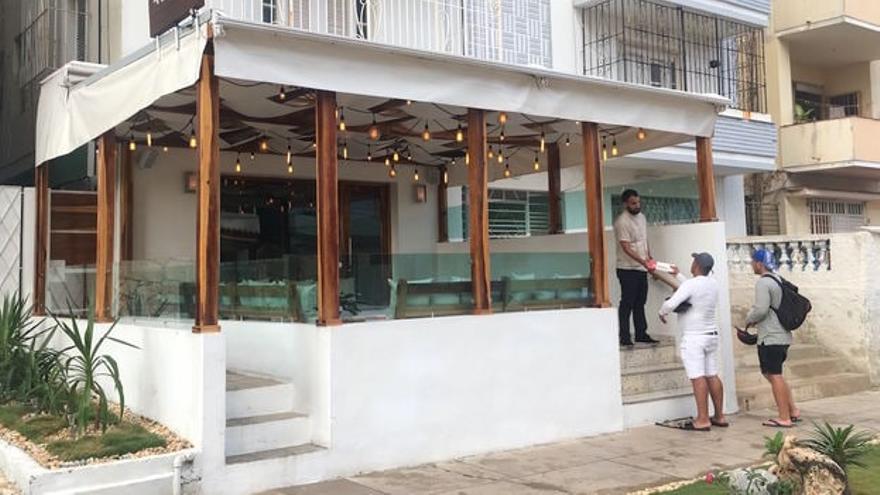
![]() 14ymedio, Havana, 23 January 2021 — The authorities have taken a small step back and, in the face of protests from the private sector for discriminating against them in the reduction of electricity prices announced last December, they are offering them several options not to pay so much.
14ymedio, Havana, 23 January 2021 — The authorities have taken a small step back and, in the face of protests from the private sector for discriminating against them in the reduction of electricity prices announced last December, they are offering them several options not to pay so much.
The Minister of Energy and Mines, Liván Arronte Cruz, acknowledged this Thursday, on the national television program The Roundtable, that these modifications are carried out “based on the criticism” they received after the new electricity prices, which were lowered after announcing that they would go up from January 1.
Arronte, who said that the increase in the price of electricity was made “to encourage savings,” assured that “everything that is owed and that can be corrected, it will be done in an effective way” but that if demand is not met, there will be blackouts.
The deputy minister of the Ministry of Energy and Mines, Tatiana Amarán, detailed the options. The first is to pay for all electricity consumption at the rate approved for the residential sector. In the second, that consumption can be paid for the rate that today applies to the state sector, connected to low voltage, while the third option involves a combination of the two previous rates.
This third, she specified, will be applied to common services within multi-family buildings.
Amarán gave as an example some figures to illustrate that with low consumption, both in the first option and in the third, the same would be paid, but as consumption increases, the third variant “will always be more economical for the forms of non-state management that carry out their activity within the home.”
The objective, she said, is “not to charge non-state forms of commerce with a greater increase in the electricity tariff.”
“The best option is the third, but of course, we must bear in mind that whoever has their business outside their home cannot avail themselves of this possibility,” a private sector worker told 14ymedio .
With an experience of more than a decade as an entrepreneur, the young woman ensures that this can also be used for new people who want to pay less. “All they need to do is take out a license and pay for it and they would already benefit from this option,” she commented.
“They did not make many changes, the difference is minimal if we are talking about a business, but yes, this benefits the private sector a little. The best option is the third, comparatively speaking,” said a specialist in the field consulted by this newspaper.
Amarán also announced that the resolution approving these new rates was issued this Friday morning, which is why the electricity companies will not begin contracting until this Saturday.
For his part, Arronte acknowledged that Cuba has “no additional sources at this time” and that electricity is generated “to the same extent that it is demanded by the population and the economy.”
“If consumption increases because the rates do not regulate it and the cost of the generated kilowatt exceeds what is expected in the analyses carried out, depending on fuel prices and the generation levels that are achieved, we could be spending 5,000 million pesos per above 17,800 million foreseen for the subsidies of the tariffs, “he detailed.
The minister recalled that 48% of the fuel used in the country to generate electricity is imported and no less than 95% of the electricity consumed in the country comes from fossil fuels. The other 5% comes from clean energy, far from the minimum 20% set by the 2030 Agenda.
____________
COLLABORATE WITH OUR WORK: The 14ymedio team is committed to practicing serious journalism that reflects Cuba’s reality in all its depth. Thank you for joining us on this long journey. We invite you to continue supporting us by becoming a member of 14ymedio now. Together we can continue transforming journalism in Cuba.
